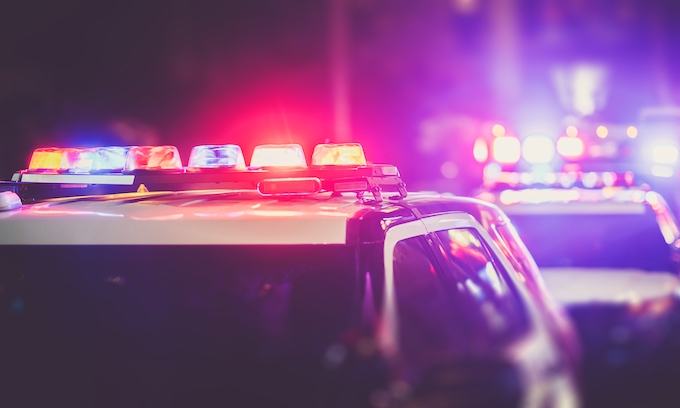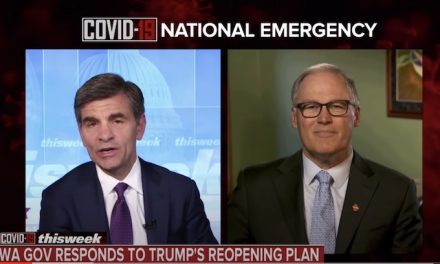For the last two years, Seattle politicians and activists have debated whether and how to reform public safety response in the city, focusing on the funding and responsibilities of the Seattle Police Department.
After shifting more than $45 million in services out of SPD over the last two budget cycles, elected officials have set their sights on creating response alternatives, rather than deliberate divestments from the department once promised to activists.
Members of the department, including incoming Chief Adrian Diaz, are somewhat cautiously open to turning some call response responsibilities over to other responders.
Diaz, who has been serving as interim chief since 2020 and was selected last week by Mayor Bruce Harrell to hold the position permanently — if approved by the city council — has openly supported a “public safety approach” that includes increased civilian response, a maintained police budget and a “culture change” in the department.
“Throughout my career, I’ve been 100% in favor of another public safety response, but I don’t want to call it alternative because like there’s so many components to it,” Diaz said, noting his involvement in growing SPD’s mental health response, Youth Violence Reduction Initiative and Before the Badge program.
“It’s hard to say alternative response because there’s so many different definitions of alternatives,” Diaz said, noting that in many cases he prefers “co-responses,” to describe instances when a social worker, mental health care provider, someone working in housing or other civilian may respond to a call along with but not in lieu of SPD.
The motives of those seeking increased alternatives range from wanting to provide more specialized services to those in need of mental or medical care, prevent the likelihood of escalation or, in some cases, lessen the workload of the police department, which has lost more than 400 officers since 2020. The types of alternatives being considered range from subsidizing police response with trained civilians to fully replacing officers on certain calls.
The City Council and mayor’s office have yet to come to terms on what type of alternative responses might suit the city, but recently signed an agreement to present a plan by the end of the year. In the meantime, Diaz said SPD is working to better define which calls make sense for SPD and which could be handled by someone other than an officer.
In 2021, a study by the National Institute for Criminal Justice Reform looked at three years of dispatch data and determined that up to 49% of the calls received by SPD could have been handled by civilian responders.
Diaz, however, says that the number is closer to 12%-15%. Yet he agrees that a badge and a gun are not necessary to handle many emergency calls that are directed to the department, which has traditionally been treated as a “catch all.”
“I think every officer is going to tell you ‘yeah, there’s plenty of calls that I get, maybe not daily, but throughout the year, that are clearly not something for an officer to cover,'” Diaz said.
Others, he says, may warrant another response.
For example, Diaz says “person down” calls may be better served without police being the primary responders, because the person involved is more likely to need medical care than criminal intervention.
“We get there and we realize, OK, this is probably a medical issue. Somebody has maybe an alcohol problem and they’re passed out. Or maybe they’re on a drug overdose. The police officer shouldn’t have to respond to that because it’s a medical problem,” Diaz said, noting later that mental health calls are his top priority for providing better alternative or co-response.
“So do we send an officer to that call and take up a lot of their officer’s time,” Diaz asked, adding that there may be cases in which police need to help intervene, but shouldn’t necessarily be the first to respond.
But not all officers are as broadly supportive of alternative responses.
Mike Solan, president of the Seattle Police Officers Guild, who has been with SPD for over 20 years, said last week that he and most officers support some forms of civilian response, but have been “traumatized” by the city’s consideration of defunding the department and are hesitant to sign on to an undefined plan.
“If the politicians have a plan that creates an atmosphere where we learn more, and we get more training, and we can be a better service to the community, then I’m all for that,” Solan said. “But what I’m hearing more often than not, are just platitudes and there’s really no plan.”
Solan said talking about replacing police response without any plan in place is residual response to the protests surrounding the police killing of George Floyd in 2020, and uses officers as scapegoats for flawed public safety in the city.
“You cannot continue to malign the officers that serve and throw them under the bus more often than not,” Solan said, adding that discussions of police reform contribute to low morale and resignations in the department.
Diaz and the department are working on a “risk management demand” study, which will assess service calls to determine which level of response makes the most sense, according to SPD. In a forum he attended when vying for the permanent chief position, Diaz described those categories of response: officer response; primarily officer response with a civilian partner; primarily social service response with an officer support; and civilian response.
Certain calls, like about trash and other non emergency issues, would be answered by nonofficers, thus freeing up time for officers to focus on more serious criminal activity.
“That’s where I end up having to take in much more deeper analysis than what the union is probably understanding,” Diaz said.
Solan said he recognizes the value of unsworn staff in certain situations, voicing his support for a proposed expansion of the city’s park ranger program. But he said he worries about civilian response being ineffective in some instances.
One example Solan gave was civilians staffing traffic and large crowds outside of sporting events, where he says people become disorderly and won’t necessarily comply without the threat of arrest.
“I can tell you right now people will disregard somebody who has not arrestable powers … it’ll be chaos,” Solan said.
Solan said removing police from certain calls to prevent potential escalation would be an overreaction to cases of overuse of force.
“Of course, that could be an issue. But does that mean you remove a police officer? No,” Solan said, advocating police presence as a means of protecting firefighters, social workers or other civilian responders.
On Tuesday, Harrell will release his first proposed budget as mayor and Diaz will present the risk management report. Diaz would not share whether to expect any new funding in SPD’s budget for civilian response, but said that he supports a recent agreement between the City Council and mayor’s office to establish an overall plan for emergency response in the city, including creating some alternative response in 2023.
Diaz said the department was “100% at the table” in helping Harrell form a potential third public safety department, the details of which will be shared by the end of the year, with the intent of operating the department in 2024.
But many of the finer points of alternative response may not be able to be finalized until the city and SPOG agree on a contract for the officers, which has been in negotiations for nearly two years.
“If that’s (alternative response) what’s going to be put in place [when] we’re done bargaining, obviously, we would support that. In the meantime, we’ve considered most of that our body of work, and so they have to negotiate that with us,” Solan said.
“But I’m not quite certain that they even understand what alternative forms of policing looks like,” he added.
___
(c)2022 The Seattle Times
Visit The Seattle Times at www.seattletimes.com
Distributed by Tribune Content Agency, LLC.
—-
This content is published through a licensing agreement with Acquire Media using its NewsEdge technology.



















Politicians and activists have debated! What this really means is the citizens of Seattle are not part of the fact finding and debate on the issue of public safety, it’s about appeasing the loudly vocal radicals who have no respect for the people but have given themselves over totally to the liberal woke agenda!
To the Seattle woke politicians liberal left Democrats it is more important, Not to hurt the feeling of the criminal law breakers than to enforce the laws and protect the people.
We should not be letting the Woke bully the rest of us or harm our children with their insane wackiness.
They are just substituting Badge and Gun with Tax and Spend, the real weapons of choice liberals use to control THE PEOPLE who might oppose them.
As i’ve said before, THEY CARE MORE for the crooks, than VICTIMS of crime.
I wonder how many non-sworn will die?